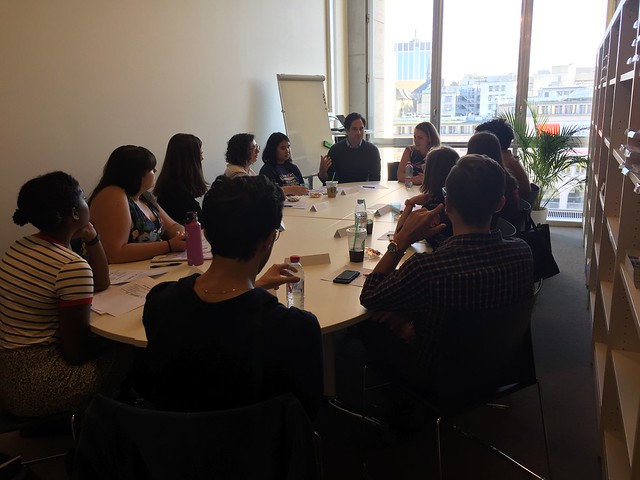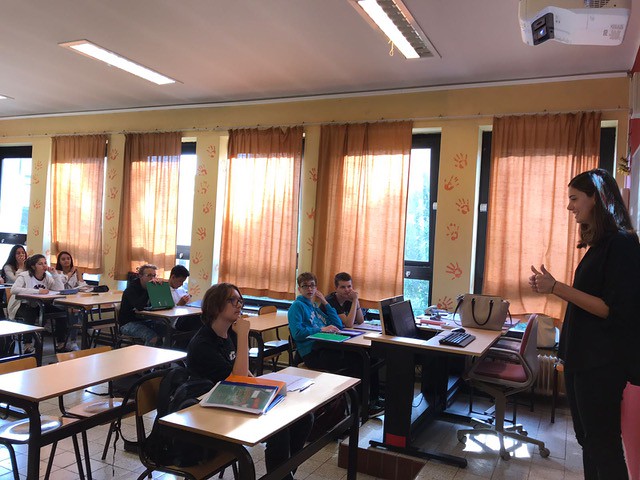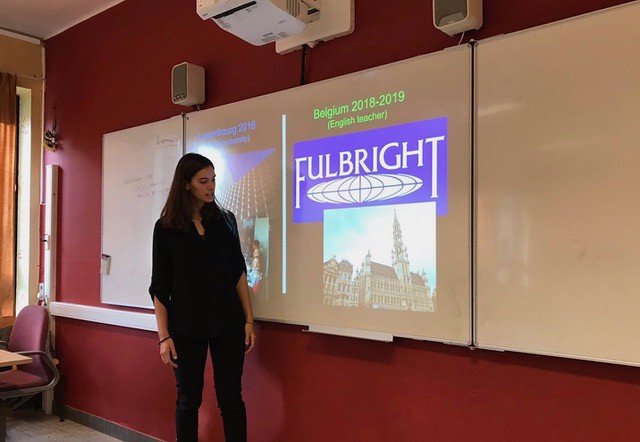Alexandra DeJongh is a 2018-2019 American Fulbright English Teaching Assistant to Belgium, where she will spend the academic year teaching in two secondary schools in Brussels. As part of their in-country orientation, Allie and her fellow English Teaching Assistants participated in a day-long negotiation workshop with Avi Goldstein of the Pathways Institute for Negotiation Education.
We started off our 2018 Fulbright ETA Training Day with a game. The instructions were to “get as many points as possible without talking to your counterpart.” My competitive spirit translated this to, “get more points than your opponent and soundly defeat him or her.” So with these instructions in mind, I chose tactics that I thought would benefit me the most while weakening my counterpart Ingrid.
Halfway through the game the instructions changed so that we were now allowed to talk with one other. Ingrid pointed out that we could both receive the maximum amount of points possible if we actually worked together, a tactic I had not considered. She also pointed out that this was a workshop focused on negotiation and teamwork so the object of the game probably had to do with those topics (and not with trying to defeat one another).
She was correct! Mr. Avi Goldstein of the Pathways Institute for Negotiation Education explained that the objective of the game had been to show us how necessary communication is to bring about the best results. Without communication, there is misunderstanding and unnecessary competitiveness. In fact, our group found that about half of us ETAs to Belgium and Luxembourg are extremely competitive (I personally blame growing up with three competitive brothers – if you wanted the TV remote, you had to get to it first!). Yet whether less competitive or extremely competitive, the workshop Mr. Goldstein led was applicable to everyone in the group as it focused on the importance of collaborative problem-solving and on how to negotiate so that both sides benefit. Oftentimes, negotiation is seen as a zero-sum game but it does not have to be. Our discussions with him and our delicious lunch in sunny Egmont park made for a great ETA Training Day.

My favorite aspect of the workshop were the discussions about these topics with the other ETAs. We will all work with teachers and professors at our schools so it was helpful to hear from others about what they thought were the best ways to communicate with colleagues. We are also all amidst the first few weeks of integrating into a different culture so I enjoyed hearing from other ETAs about their first experiences in Belgian and Luxembourgish culture.
ETA Training Day was definitely a success and each of us ETAs walked away with a better sense of how to successfully collaborate with our colleagues and students and how to navigate the complex process of building cross-cultural relationships. The day was also a helpful reminder that we all have a support system of ten other ETAs going through similar experiences.
Many thanks to Mr. Avi Goldstein and the Fulbright Commission!


Articles are written by Fulbright grantees and do not reflect the opinions of the Fulbright Commission, the grantees’ host institutions, or the U.S. Department of State.